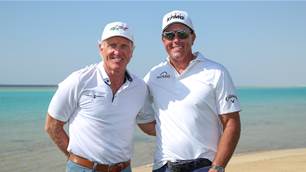Having prided itself on existing as a sports fan-type entity, how is ESPN handling life as The Establishment?
Having prided itself on existing as a sports fan-type entity, how is ESPN handling life as The Establishment?
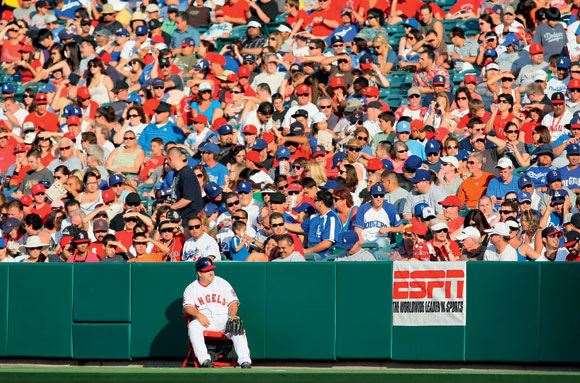 photos by Getty Images
photos by Getty Images
Cry as it might, world domination will likely forever elude the AFL. But Aussie rules can proudly lay claim to abetting another sports brand that did devour the globe. Back in the early ’80s, highlights of the then-VFL were shown on a fledging pay-television network called ESPN. The current president of ESPN, George Bodenheimer, recalls in the new book Those Guys Have All The Fun, that footy “was one of our bedrocks, and we put up a graphic on the screen, kind of in ESPN style: ‘We don’t know the rules either. If you would like to know the rules, send us a postcard.’ And we got 50,000 postcards.”
The aerial ping-pong of the antipodes became something of an emblem for the quirkiness called upon to fill out those early days of 24-hour sports programming. It’s hard to believe from the vantage point of this niche-channel universe we live in, but people in those days really were asking: why would anyone want sports 24 hours a day? In the context of One’s step-down from wall-to-wall sport, it’s interesting that the Entertainment Sports Programming Network planned at its outset to show non-sports content, as its name suggested, but instead stuck to a single focus – and in the process infused an entertainment ethos into sport.
Since its days as a small line-item on the books of Getty Oil, ESPN has become a brand synonymous with sport rivalled only by the likes
of the Olympics or Nike, constituting six cable channels in the United States and 46 networks internationally that reach 200 countries, as well as internet, radio and print components. David Hill, the former Nine and then-Fox supremo, noted the genius of ESPN was to convince cable operators that the nation would rise up with pitchforks if it was taken off the air, no matter what the ratings were – which is why $4 of every cable bill in the US goes to ESPN. The self-styled “Worldwide Leader in Sports” is the most profitable arm of its parent company, Disney. (Yes, it makes more money than Mickey Mouse.)
The story of ESPN in Those Guys, rendered by authors James Andrew Miller and Tom Shales, is one of an outlier. The old VFL wasn’t ESPN’s only tangential encounter in Australia. Its broadcast of the America’s Cup yachting from Fremantle in 1988 was a technical landmark for the network, and was another example of how it would take events at the margins of televised sport and get people to watch. Some of these properties grew to become bulwarks in their own right: NASCAR, college basketball’s March Madness, X Games, the World Series of Poker, the NFL Draft ‒ a little-publicised event back in 1980 that ESPN latched onto because it was desperate to have any kind of association with football.
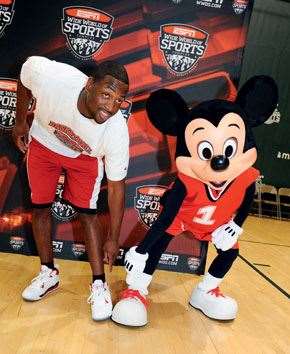 photos by Getty Images
photos by Getty ImagesAs a former executive puts it in the book, ESPN doesn’t see itself as a TV network, but as a sports fan: it’s obsessive sports nerd, guy you argue with in the bar and pop-culture junkie all at the same time, with a direct connection to the 18-to-35 male demographic. ESPN has transcended mere games. While its peer in cable, MTV, was said to have defined a generation only to devolve into a mess of Jersey Shore-like reality series, ESPN’s cultural influence continues to expand.
Perhaps the most interesting insight of Those Guys is, for an organisation that has done as much as anyone to elevate the idea of sports stardom to the level of celebrities in other fields, ESPN loathes having stars in its own ranks. But by covering sport in such a personality-driven way, it can’t help but mint high-profile commentators and talking heads that invite controversy, and with the extent of the company’s reach, ESPN gives the impression that it’s covering itself. All these impulses came to a head in its decision to get involved with LeBron James’ The Decision, and it earned ESPN much the same criticism as James as shameless self-promoters.
It’s a classic case of the too-successful insurgent. ESPN would still like to think of itself as a challenger, or at least that there’s still a part of that in its DNA. Outwardly, though, it has become The Establishment. As comedian Jimmy Kimmel says: “It’s McDonalds.” To use its own framework, if ESPN is a sports fan, he’s definitely not one in the concourse seats anymore, and not even someone in the corporate boxes – he owns the stadium.
‒ Jeff Centenera
Related Articles
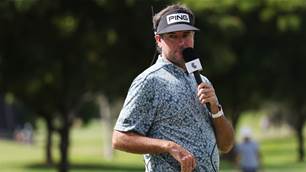
Bubba 'paid to play' in PGA Tour events
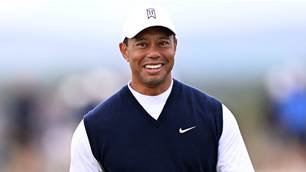
Tiger reportedly set to address PGA Tour players
